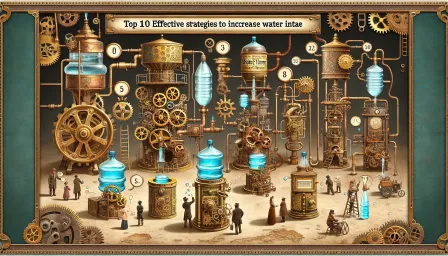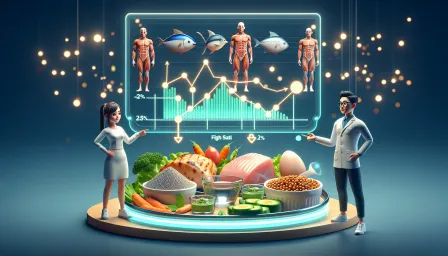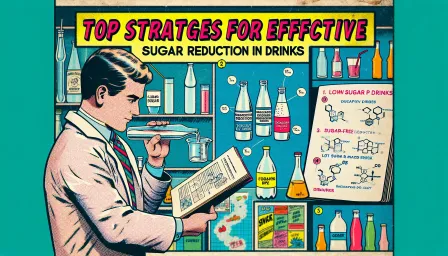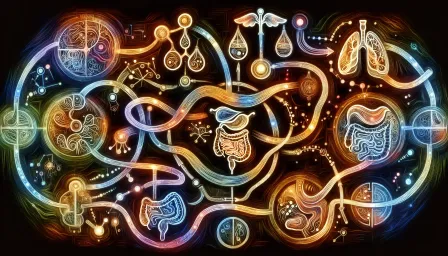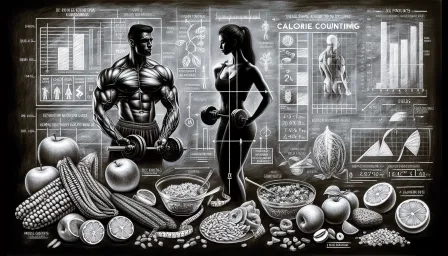High-Protein Diet Meal Plan: Your Ultimate Guide to Healthy Eating
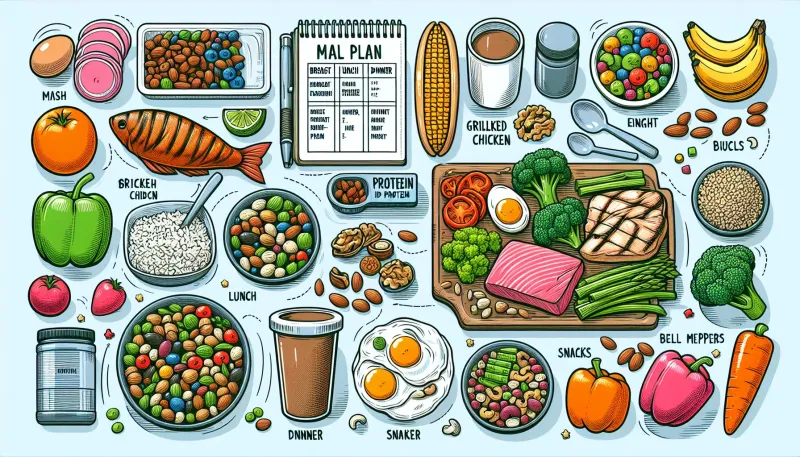
Discover the ultimate high-protein diet meal plan designed to help you achieve your health goals. This guide offers valuable insights, recipes, and practical tips.
Adopting a high-protein diet meal plan can be a transformative experience for those seeking to improve their health, build muscle, and lose weight. In this comprehensive guide, we will delve into the benefits of a high-protein diet, how to structure a meal plan, and practical tips to make the transition smoother. Let's get started!
Why Choose a High-Protein Diet?
Protein is an essential nutrient that plays a crucial role in the body's growth, repair, and maintenance. A high-protein diet can offer various benefits, including:
- Muscle Building: Proteins provide the necessary building blocks (amino acids) for muscle repair and growth.
- Weight Management: Protein aids in increasing satiety, reducing overall calorie intake.
- Metabolism Boost: Protein requires more energy to digest compared to fats and carbohydrates, which can help boost metabolism.
- Improved Health: Adequate protein intake supports immune function, hormone production, and overall cellular health.
Setting Up Your High-Protein Diet Meal Plan
Calculate Your Protein Needs
Before diving into meal planning, it's important to determine your protein needs. For most people, a daily intake of 0.8-1.2 grams of protein per pound of body weight is sufficient. Athletes and those involved in intense physical activity may require up to 1.4 grams per pound.
Include a Protein Source in Every Meal
To maximize protein intake, ensure each meal contains a significant source of protein. Here are some high-protein foods to consider:
- Animal Proteins: Chicken, turkey, lean beef, pork, fish, eggs, dairy products (milk, cheese, yogurt)
- Plant Proteins: Beans, lentils, tofu, tempeh, quinoa, chickpeas, edamame, nuts, seeds
Sample High-Protein Diet Meal Plan
Breakfast
Start your day with a protein-rich breakfast to kickstart your metabolism and keep you full until your next meal.
- Scrambled eggs with spinach and feta cheese
- Greek yogurt with mixed berries and a handful of nuts
- Protein smoothie with whey protein powder, almond milk, a banana, and spinach
Lunch
For lunch, opt for balanced meals that combine protein, healthy fats, and whole grains.
- Grilled chicken salad with avocado, cherry tomatoes, and a balsamic vinaigrette
- Tuna salad wrap with whole-grain tortillas and a side of carrot sticks
- Lentil soup with a side of whole-grain bread
Dinner
Dinner should be hearty yet balanced, providing sustained energy throughout the evening.
- Baked salmon with quinoa and steamed broccoli
- Beef stir-fry with bell peppers, onions, and brown rice
- Chickpea and vegetable curry with a side of basmati rice
Snacking on a High-Protein Diet
Healthy snacks are a great way to keep your energy levels up and your hunger at bay. High-protein snack options include:
- Hard-boiled eggs
- Cottage cheese with pineapple
- Protein bars or shakes
- Hummus with celery sticks
- Mixed nuts and seeds
Tips for Success on a High-Protein Diet
Transitioning to a high-protein diet can be challenging, but these tips can help you stay on track:
Plan and Prep Your Meals
Meal planning and preparation are key to staying consistent with your diet. Set aside time each week to plan your meals, create a shopping list, and prep ingredients.
Stay Hydrated
Drink plenty of water throughout the day to aid digestion and prevent dehydration, especially with increased protein intake.
Listen to Your Body
Everyone's nutritional needs are different. Pay attention to how your body responds to the high-protein diet and adjust your intake as necessary.
Balance Your Macronutrients
While protein is important, it's essential to include a balance of carbohydrates and fats in your diet to ensure you get a variety of nutrients.
Seek Professional Guidance
If you're unsure about how to start or have specific dietary concerns, consulting with a nutritionist or dietitian can provide personalized advice and support.
Conclusion
A high-protein diet meal plan can offer numerous health benefits, from muscle building and weight management to improved overall health. By understanding your protein needs and incorporating a variety of protein sources into your meals, you can set yourself up for success. Remember to stay hydrated, listen to your body, and seek professional guidance if needed. Happy healthy eating!








